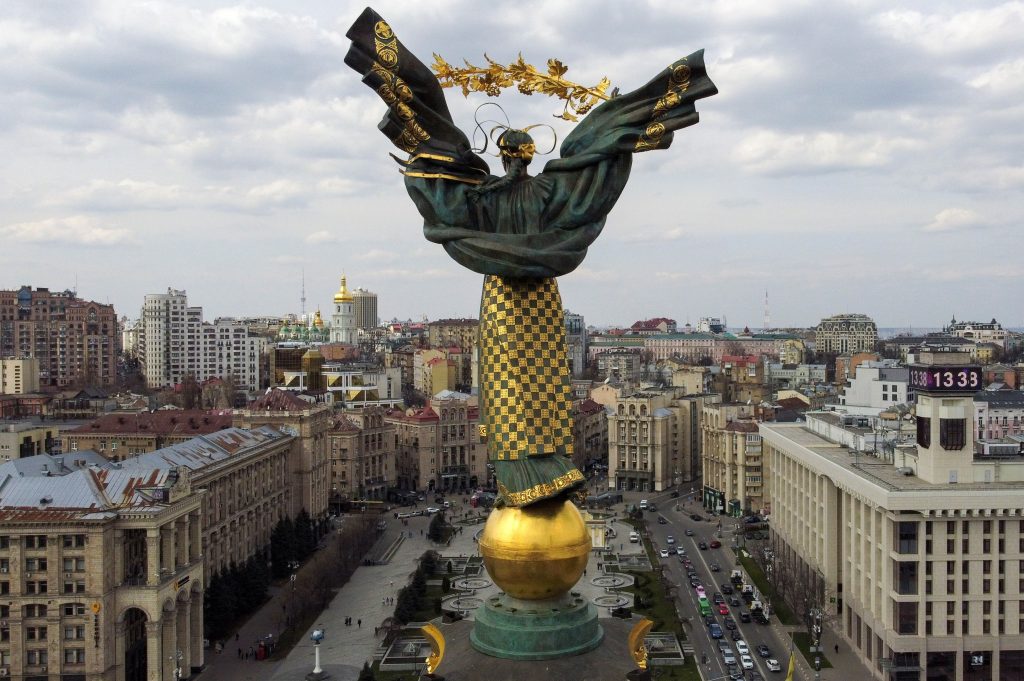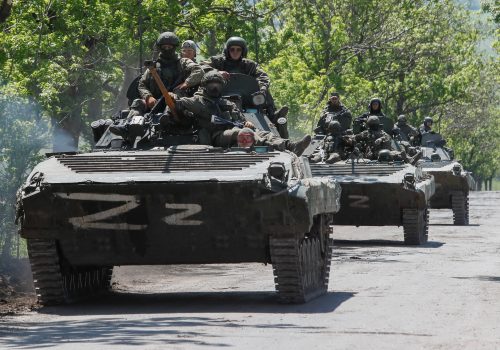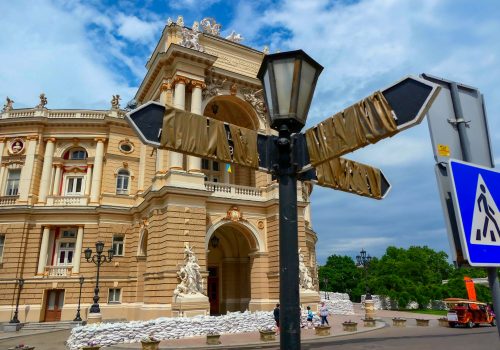News of the recent decision to grant Ukraine official EU candidate nation status has sparked a wide range of mixed reactions among Ukrainians. Some observers remain skeptical and point out that countries like Turkey have been EU candidates for many years without making any further progress toward actual membership. Others see the EU decision as an historic breakthrough and are now busy debating how soon Ukraine can complete the journey to full membership.
There is one thing that everybody can agree on: by granting candidate status, all 27 EU member states have recognized Ukraine’s importance to the wider European community. This in itself is a meaningful milestone that should encourage Ukrainians to embrace further EU integration. The road ahead toward membership may still be long, but the journey is a once-in-a-lifetime opportunity to transform Ukraine.
In order to progress from EU candidate to member state, Ukraine must implement a wide range of reforms. Many of these reforms will be challenging and potentially painful, but they are all geared toward making the country a better place to live for all Ukrainians. Over the past few decades, GDP growth in EU candidate countries has consistently been around 2% higher than within the EU itself. This reflects the beneficial nature of the economic reforms adopted as part of the EU integration process.
Stay updated
As the world watches the Russian invasion of Ukraine unfold, UkraineAlert delivers the best Atlantic Council expert insight and analysis on Ukraine twice a week directly to your inbox.
At this stage, Ukraine’s top reform priorities remain judicial reform and the fight against corruption. In order to repair the colossal material damage caused by Putin’s war, Ukraine will require huge amounts of international investment. An effective court system and rule of law safeguards are essential if Ukraine is to attract the necessary levels of investment to finance this vast reconstruction process.
Ukraine’s most immediate reform priorities include appointing new heads of the Specialized Anti-Corruption Prosecutor’s Office and National Anti-Corruption Bureau. Fundamental reform is also necessary at the Constitutional Court, Supreme Council of Justice, and the High Qualification Commission of Judges.
As it approaches these reform challenges, Ukraine should take note of positive and negative case studies elsewhere in Europe. Bulgaria and Romania, which became EU members in 2007, were both able to overcome reputations for corruption and introduce judicial reforms with the help of civil society. Meanwhile, Montenegro has achieved significant success in terms of implementing EU security and economic policy but remains far from membership due to a lack of progress toward the rule of law.
Ukraine’s efforts to reduce oligarch influence are crucial for the country’s European integration but must be undertaken within the framework of constitutional and European norms. The Ukrainian authorities should also continue to pursue economic reforms. Trade with the EU must be further liberalized, while the harmful practice of constantly revising tax regulations needs to be abandoned. Crucially, investors must receive guarantees in order to generate the kind of investments necessary to rebuild post-war Ukraine.
In addition to judicial and economic reforms, Ukraine’s European integration also means building a truly inclusive society. The recent ratification of the Istanbul Convention was an important step in the right direction for the country, but Ukraine still needs to develop additional tools that will help monitor and combat all forms of discrimination.
Eurasia Center events

The potential future benefits of Ukraine’s EU reform agenda are obvious. Indeed, the countries of Central Europe and the Baltic region all adopted similar reforms and have since experienced dramatic improvements in average quality of life. At the same time, countries like Serbia and Bosnia where resistance to reform has been strongest have experienced limited economic and social progress while remaining firmly outside the EU.
Ukrainians are currently locked in a fight for national survival. They know that without victory over Russia, their country will cease to exist. At the same time, EU candidate status offers Ukrainians something clear and specific to aim for. Crucially, the prospect of potential future EU membership gives added meaning to the country’s war effort. It provides Ukrainians with a road map toward European integration and the chance to live a better life. While Russia fights for the authoritarian past, Ukraine fights for a European future.
There may never be a better chance to achieve fundamental change in Ukraine. The unprecedented trauma and turbulence unleashed by Putin’s war have created the momentum to finally move Ukraine away from the chronic corruption of the post-Soviet era. The authorities must now seize the moment while also involving civil society in the reform process.
Ukraine’s war effort remains the absolute priority for the entire country. At the same time, building a better Ukraine is also essential in the long struggle to escape the Kremlin orbit. Ever since Ukraine regained independence in 1991, Ukrainians have viewed European integration as a civilizational choice that would lead the country away from the authoritarianism of the imperial past. Russia has responded to Ukraine’s European choice by unleashing years of unprovoked aggression culminating in the current full-scale invasion. Despite the horrors of Putin’s war, Ukraine’s dream of a European future lives on.
The bravery of Ukraine’s soldiers and the courage of the Ukrainian people have enabled the country to remain firmly on the path of European integration. Their sacrifices must not be betrayed. Instead, the authorities must pursue an ambitious wartime reform agenda that reflects the scale of Ukraine’s European ambitions. EU membership may still be a long way off, but the transformation of Ukraine is already underway and must continue.
Kira Rudik is leader of the Golos party, member of the Ukrainian parliament, and Vice President of the Alliance of Liberals and Democrats for Europe (ALDE).
Further reading
The views expressed in UkraineAlert are solely those of the authors and do not necessarily reflect the views of the Atlantic Council, its staff, or its supporters.

The Eurasia Center’s mission is to enhance transatlantic cooperation in promoting stability, democratic values and prosperity in Eurasia, from Eastern Europe and Turkey in the West to the Caucasus, Russia and Central Asia in the East.
Follow us on social media
and support our work
Image: The Independence Monument above Kyiv's Independence Square. April 6, 2021. (REUTERS/Valentyn Ogirenko)




